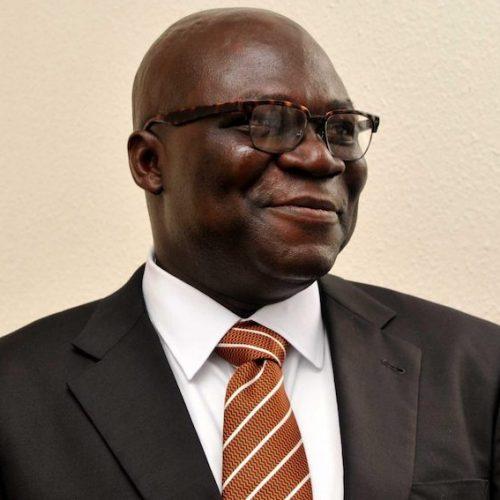At a time that Nigerians are convinced beyond reasonable that the President Muhammadu Buhari-led Federal Government would perform no miracle, nor would it keep all the promises it made to solve the litany of challenges in the country’s petroleum sector, nothing could be more soothing than the news of the inauguration of the Dangote Petroleum Refinery, in the Ibeju-Lekki, Lagos, tomorrow, by the outgoing president.
The inauguration of the massive facility is not only pleasant news for Nigerians because its output is expected to be more than enough to meet the country’s fuel demands, as well as turn Africa’s largest crude producer into an exporter of refined crude, it will also make the country self-sufficient in local refining of crude oil thereby saving scarce foreign exchange that is used in the importation of petroleum products.
To be ready for commissioning, man and machine over the past six years or thereabouts, put in over 60, 000 hours of work at the site since construction work on the facility commenced in 2016, as over 126 heavy-duty trucks daily, ran across a massive land area, which is about seven times the size of Victoria Island.
This is aside from the 750 heavy-duty equipment that were stationed in what constituted one of the biggest construction projects in any part of the world.
The initial estimate of the project was put at between $12 billion and $14 billion, but after years of delays and shifts in the inauguration timetable, the cost of Africa’s biggest oil refinery and the world’s biggest single-train facility cost grew to $19 billion.
“Efforts by the Federal Government to make Nigeria self-sufficient in local refining of crude oil to save the scarce foreign exchange used in the importation of petroleum products have received a boost as the 650,000 barrels per day Dangote Refinery, the world’s largest single-train refinery, is set for inauguration on May 22nd, 2023, by President Muhammadu Buhari,” presidential spokesperson, Bashir Ahmad tweeted on his Twitter handle, @BashirAhmaad.
Ahead of the inauguration, the Dangote Group in a Facts Sheet obtained by The Guardian gave details of the facility, as well as whetted the appetite of stakeholders as it reveal tiny, but very important details about the facility.
Apart from being the world’s Largest Single-Train 650,000 barrels-per-day petroleum refinery, with a 900 KTPA Polypropylene Plant, the 435 MW power plant in the refinery alone can meet the total power requirement of Ibadan DisCo of 860,316 MWh, covering five states, including Oyo, Ogun, Osun, Kwara, and Ekiti.
The Facts Sheets further affirmed that the refinery can meet 100 per cent of the country’s requirement of all refined products: gasoline, 53 million litres per day; diesel, 34 million litres per day; kerosene, 10 million litres per day, and aviation jet, 2 million litres per day, and also has a surplus of each of these products for export.

Other details availed by the document include the fact that it is designed for 100 per cent Nigerian crude, with the flexibility to process other crudes; self-sufficient marine facility with the ability for freight optimisation, and is the largest single order of five SPMs anywhere in the world.
Furthermore, the refinery design complies with World Bank, US EPA, European emission norms, and Department of Petroleum Resources (DPR) emission/ effluent norms, even as diesel and gasoline products from the refinery will conform to Euro V specifications.
Besides the state-of-the-art technology employed in its construction, the facility is designed to process a large variety of crudes including many of the African crudes, some of the Middle Eastern crudes, and the US Light Tight Oil.
To get the massive facility to fruition, a whopping 65 million cubic metres of sand were dredged at the cost of approximately €300 million, using the world’s largest, second largest, and tenth largest dredgers to elevate the height by 1.5 metres, to insure against any potential impact of the increase in mean sea level due to global warming.
Part of this assignment was executed by some of the over 1, 209 units of equipment bought to enhance the local capacity for site works since even the biggest local civil contractors were unable to handle even small portions of the construction’s requirement.
In addition to this, the Dangote Group bought 332 cranes to build up equipment installation capacity since the current capacity in the country is extremely poor, and it also built the world’s largest granite quarry to supply coarse aggregate, stone column material, stone base, stone dust and material for breakwater (10 million tonnes per year production capacity).
With 177 tanks of 4.742 billion litre capacity, and a total tanker loading of 2, 900 (based on a tanker capacity of 33KL), the company also developed a port and constructed two quays with a load-bearing capacity of 25 tonnes/sq meter to bring Over Dimensional Cargoes (ODCs) close to the site directly.
Additionally, it also constructed two more quays in the port with a capacity to handle up to Panamax vessels to export fertiliser and petrochemicals, and two quays to handle liquid cargoes.
Interestingly, Dangote Group is one of the few companies in the world that has executed a petroleum refinery and a petrochemical complex directly as an Engineering, Procurement, and Construction (EPC) Contractor.
“Globally,” the company maintained: “Apart from three companies, no individual owner has done the complete EPC Contract for a petroleum refinery, and the project utilised the coordination of various local and international suppliers and the coordination of multi-cultural work teams.
Summarising benefits that would accrue to the country from the multi-billion dollar investment during a visit to the project earlier on, the Group Executive Director, Strategy, Portfolio Development and Capital Projects, Dangote Industries Limited, Devakumar Edwin, said when completed, the project will alleviate the company’s petroleum challenges despite the logistical nightmare posed by its construction.
Edwin explained: “We have bought over 750 pieces of equipment to enhance the local capacity for site works since even Julius Berger, Dantata & Sawoe, Hi-Tech, and the like were unable to handle even small portions of our construction requirement of heavy earth-moving equipment, bulldozers, excavators, bobcats, compactors and front end loaders.”
Of all Dangote Group projects, it is only at Obajana Cement and the petrochemical complex that Dangote Industries is the APC contractor. Asked about the reason for this, the executive director said: “Obajana was our first major investment, and we spent about $1.2b in the first two trains, not all the expansions that we have done now. We were not the APC contractors at that time and three major contractors from across the world applied.”
The Dangote chief explained that the refinery designed for 100 per cent Nigerian crude with the flexibility to process others, apart from meeting and surpassing the country’s gasoline needs, would also create a market of $11b per annum for Nigerian crude, even as it possesses strategically located marine infrastructure for crude receipts and product trade.
The refinery is expected to generate over 100, 000 indirect employment (retail outlets), and lead to the establishment of 26, 716 filling stations and 129 depots in the country.
It is also expected to lead to the revival of 11, 000 filling stations shutdown due to product shortages, engender ease of availability of the product, facilitate the opening up of service stations, and create additional jobs for 2, 600 truck drivers involved in product transportation.
Even before fully coming on stream, the refinery and petrochemical complex reasonably changed the country’s economic landscape with at least 120 companies providing goods and services valued at over N148b on site.
Expected to operate at full capacity from Day One, products from the refinery will go a long way in solving the problem of dirty fuel that most Nigerian motorists are constrained to purchase, which over time compromises their vehicles.
Last year, the Chairman of the Dangote Group, Aliko Dangote, stressed that the refinery would be commissioned by Buhari before he leaves office.
Earlier in June 2021, the Group Managing Director, of the Nigeria National Petroleum Commission Limited (NNPCL), Mele Kyari, confirmed that the Federal Government would acquire a 20 per cent equity stake in the Dangote Refinery. The Federal Executive Council (FEC), two months later, approved the sum of $2.76 billion for the equity stake acquisition in the refinery.
While speaking on a special edition of “The World Ahead 2023,” at the behest of London-based magazine – The Economist, Dangote said: “The refinery will create a lot of jobs. When you look at the entire value chain, from the upstream to the downstream, we’re talking about almost a million jobs.
“We are also producing polypropylene and polyethylene, which are essential components in the manufacturing of plastics. So, we will be supplying to the petrochemical industry in Nigeria.”
“The refinery’s production of critical products like naphtha and polypropylene will stimulate the development of other industries, such as cosmetics, plastics, and textiles. Refineries on this scale could save Nigeria up to $10 billion in foreign exchange and generate approximately $10 billion from exports.
Commenting on the country’s import dependency and reliance on foreign markets, he said the multi-billion dollar facility presents major prospects for import substitution and supply chain localisation.
“We see room for development of added value in agribusiness too. Here, initiatives like our Sugar Backward Integration Projects look to create a strong localised supply in the sugar industry. With a goal to produce around 0.5 million tons of sugar per annum from locally grown sugar cane, benefits will be created across the sugar value chain for local suppliers,” he added.
“Sub-Saharan Africa presents an opportunity for expansion, as its population is projected to grow from 1.1 billion to over 2.1 billion by 2050, with two-thirds of this growth in urban areas. Nigeria currently has an installed cement production capacity of about 54m tons/pa, which exceeds local demand and so a lot of this can be exported across Africa.”
Source: Guardian






















